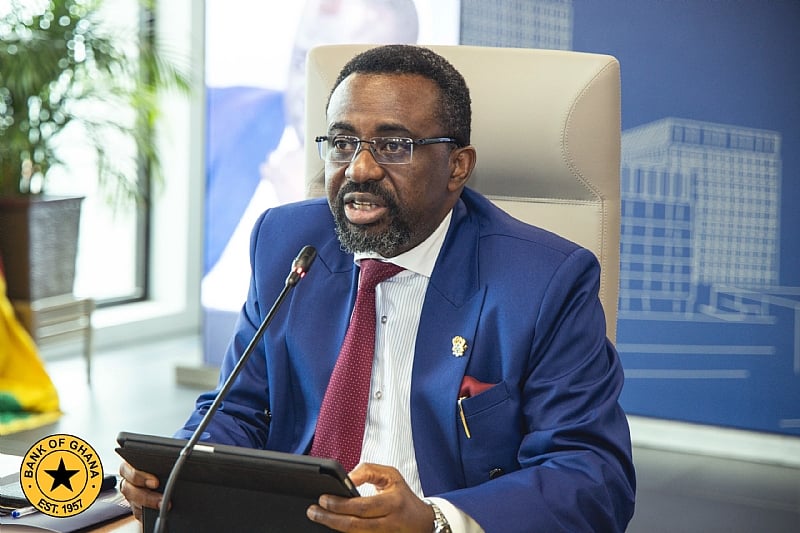The Governor of the Bank of Ghana, Dr. Johnson Pandit Asiama, addressed concerns about a potential US dollar shortage, assuring the business community and investors that the banking system held sufficient foreign exchange reserves. He acknowledged a decline in remittance inflows since April 2025 but dismissed the notion of a systemic dollar scarcity. Dr. Asiama attributed any delays in foreign exchange transactions to inadequate documentation from some importers, emphasizing that the Bank of Ghana was actively investigating these cases. He underscored the Bank’s commitment to ensuring a smooth flow of foreign exchange and reiterated that there was no reason to anticipate a dollar shortage. The Governor highlighted the Bank’s proactive measures, including strengthening oversight of remittance channels and forex inflows, to tackle the observed reduction in foreign exchange.
The Central Bank’s proactive approach includes intensified scrutiny of remittance channels and forex inflows to address the recent decline. Dr. Asiama revealed that a directive was issued to banks, Payment and Remittance Service Providers (PRSPs), and Money Transfer Operators (MTOs) on July 29, 2025, mandating them to channel foreign exchange properly through the formal financial system. This measure, coupled with the collection of additional data from key players in the remittance sector, aims to enhance transparency and ensure the efficient flow of foreign currency into the banking system. The Governor expressed confidence that these measures would effectively contain any localized pressure on foreign exchange availability.
Furthermore, Dr. Asiama announced stricter controls on banks’ nostro accounts, which are foreign currency accounts held by local banks in international financial institutions. This move is designed to prevent capital flight and ensure that all foreign exchange earned by Ghanaian entities abroad is repatriated through the official channels. By monitoring transactions in these nostro accounts, the Central Bank aims to curb any offshoring activities and ensure that all foreign exchange generated by Ghana is available to support imports and other economic activities within the country.
The Governor also clarified the mechanics of trade finance, addressing what he described as a misunderstanding among some businesses that rely on physical dollar deposits to settle trade payments. He explained that banks typically utilize their nostro accounts to finance trade and settle import obligations, eliminating the need for businesses to hold physical US dollars in Accra for such transactions. Banks, he emphasized, are equipped to facilitate these payments efficiently through their international banking relationships.
Dr. Asiama emphasized that these enhanced oversight measures are part of a comprehensive strategy to safeguard Ghana’s foreign exchange reserves and maintain exchange rate stability. He pointed to the significant appreciation of the Ghana cedi in 2025 against major currencies, including a 40.7% gain against the US dollar, a 31.2% gain against the British pound, and a 24.2% gain against the euro. The Central Bank, he stated, is committed to consolidating these gains and preserving the stability of the Ghanaian currency.
In summary, the Governor’s address aimed to reassure the business community and investors that there is no imminent dollar shortage and that the Central Bank is actively implementing measures to strengthen the flow of foreign exchange, improve transparency in the financial system, and maintain exchange rate stability. He highlighted the importance of proper documentation for import transactions, the enhanced monitoring of remittance channels, stricter controls on nostro accounts, and the proper utilization of banks’ trade finance mechanisms. These measures, coupled with the Central Bank’s commitment to maintaining robust foreign exchange reserves, underscore the Governor’s confidence in the stability and resilience of Ghana’s financial system.














